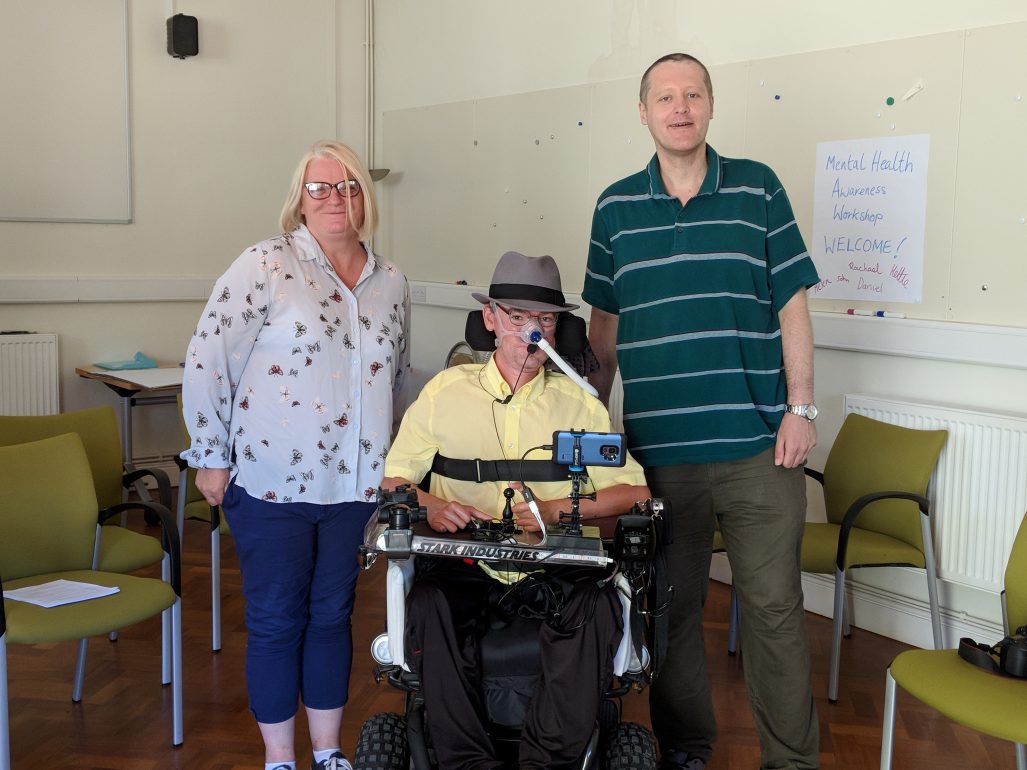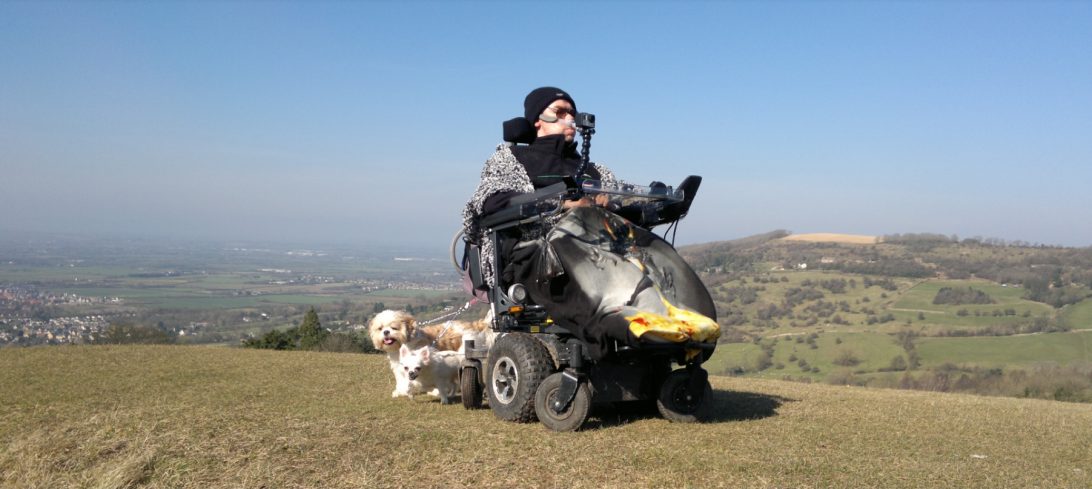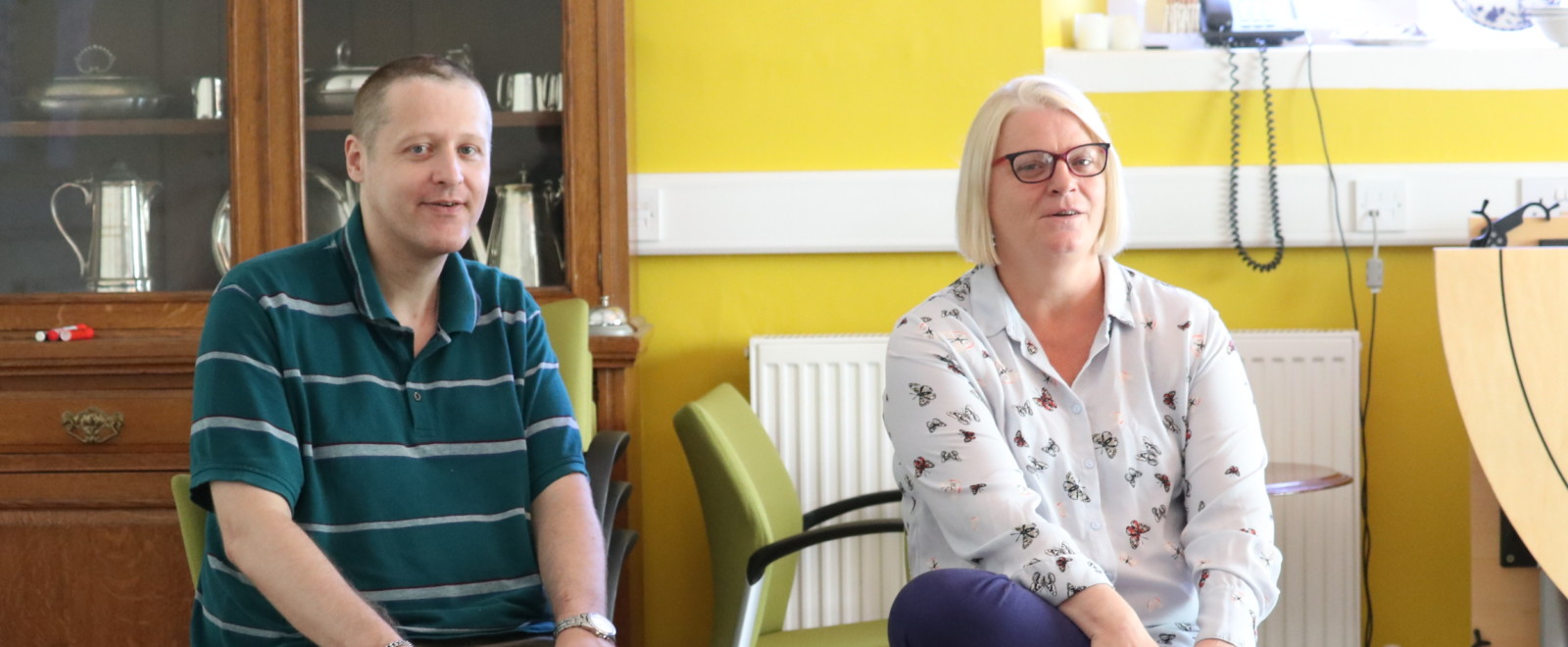
Speaking up for a mental health movement
Barnwood Trust works alongside volunteer trainers who have first-hand experience of mental health problems and disabilities. Together we create training to enable people and organisations to learn more about the issues faced by people with mental health problems and disabilities. We asked Daniel, and Rachael to tell us about their experiences of developing the training workshops, what it means to them and their hopes for the future.
What were your hopes and expectations of working with Barnwood Trust to develop and deliver a workshop about Mental Health Awareness?
Daniel: I had been in a charity called DROP which Barnwood had helped. I made a good friend there who had mental health issues. This friend asked if I would like to be part of a group that was going to raise awareness of mental health. I originally joined the group mainly to support him and at first felt slightly uneasy as I didn’t feel my own problems were as important or serious as the other group members. I have since realised that my anxiety, depression and the link between them and my physical medical condition are important and something others often don’t realise.
As I said, my original reason for joining the group was to support my friend and show that there shouldn’t be stigma surrounding mental health. This quickly grew into wanting people to see beyond the labels they are given, and what they are on the outside, to the real heart of the person inside, along with the often overlooked link between physical and mental health.
Rachael: I wasn’t really too sure what Barnwood Trust could offer, or would offer, or would help with. So I thought that we were going to go in, have a few sessions, decide ‘this is what we want to talk about’ and start sending emails and letters to anyone we could think of to see if they wanted to listen to us. It was so different!
I’d become very isolated. I’d had an extremely difficult few years which meant a lot of service intervention, especially with the police. I wanted to live a quiet life but due to the police contact, people living near me became aware of my illness and, instead of accepting it, I was bullied physically and mentally. I became isolated. I didn’t go out at all, I was very, very depressed on top of my diagnosis. Which is when I met Abi, a Barnwood Welcomer.
I had an idea that I wanted to highlight these issues to the people working in services, to let them know how they could handle things differently. For example, it was so unnecessary for someone who was having a crisis to have 6 – 8 police officers barging into my home. It was horrendous, it was horrible. I would end up in hospital for 2 to 3 weeks afterwards. And then I would have to come home to the bullies in my neighbourhood as well. I can’t imagine it was a very nice experience for the police officers either – I’m sure they had much better things they’d rather be doing that coming in and making someone more ill.

Rachael (left), Daniel (centre) and John (right) meet regularly as part of the mental health training team
What was the experience of developing and delivering the workshops like?
Rachael: There were about eight of us at the beginning – it was very difficult. Some people were not very well and everyone went in expecting different things. Even Barnwood Trust – I’m not sure they were prepared for what it’s like to put lots of people with a mental health diagnosis in the same room. You know, people think ‘you’re all going to like each other and you’re all going to understand each other because you all have a mental health diagnosis’ and I think for the first three or four months it was very hard for everyone and there were moments when I thought ‘I’m not doing this!’
But with support I carried on. We had this crisis time where someone pulled out, which was difficult, but it made the rest of us talk about the difficulties we were having within the group which turned out to be the same for everyone. There was common ground and once we sat down and talked about it, we had a bit of a pause, we all came back together, including Barnwood Trust. We realised that we all had it a bit wrong. From that moment on we seemed to take steps forward. It still wasn’t easy. We had to find some common ground.
Daniel: I was nervous at first, not knowing what I could give and not thinking I deserved to be there. The group had a slow start, nobody really understood what the end goal was, there were lots of ideas and people wanting different things, there were also misunderstandings and tensions between group members and even the facilitators, but by being honest we got past these teething problems.
As the group got to know each other we all opened up more, felt safe and could completely trust each other, these things I think were needed before we could produce a plan. I learned a lot about different types of mental health problems and also how badly people were treated by authorities and others who were supposed to help them, I also has no idea Electroconvulsive Therapy (ECT) was still used. The power of my own story also became apparent, I grew in self-confidence and realised I was of value.

Describe any changes in your life that you feel your involvement in the workshops supported?
Daniel: I have grown in confidence, I had never really spoken in front of a large group of people before, and definitely not about such personal issues. I have learned a lot about mental health myself and realised it’s not just me who finds it hard to talk about the positive qualities I may have and my achievements.
Since being part of the workshop I have given talks to groups of health care professionals completely on my own with no assistance or backup while doing so, I find it easier to talk to people in the street and even had a small acting part in the prime time BBC drama Requiem, things I wouldn’t have imagined doing before being part of this workshop.
Rachael: The developing was hard. The delivering – I just love! It’s given me so much confidence. When I’m in that room with 10 – 25 trainees sat there, my confidence is high – this is mine, I own this. I am the expert here. They might have a degree, all sorts of qualifications, but I own this. This gives me the confidence to stand up. When I am training, that is my room. There are other trainers as well and I think they all have that same feeling. It is the most amazing experience.
Whereas before I found it hard to take criticism, now I can weigh-up whether it’s important to my end goal, whether I need to work on the criticism. I work on the constructive and I forget the mindless criticism – which is something I’ve never been able to do. Now I’m doing it with all sorts of people, including the police! It’s something I’ve learned throughout the process – it’s something Hettie, our facilitator at Barnwood, has taught me without me even realising that I was learning it. It’s amazing to use these skills in other areas of my life, beyond the training, and that is probably a skill I use the most.
Our first workshop was March 2017 and then by September the police had come knocking on our door, asking us to do a workshop for them. That whole journey, which I thought would take a long time, actually happened so quickly. In January 2018 we trained 450 police officers over two months in self-harm and crisis. They were all extremely generous and open during the training, which I loved – I loved every second of it.

Our Discovering Opportunities programme enables disabled people and people with mental health problems to follow their passions and interests so that everybody has access to a range of positive opportunities and no one feels excluded.
We help individuals to explore what they would enjoy doing, and how they can do that. We help organisations which support disabled people to consider ways they can work that encourage people to develop and follow their interests. We encourage and assist people to apply for grants to support them in reaching their aspirations. Find out more here